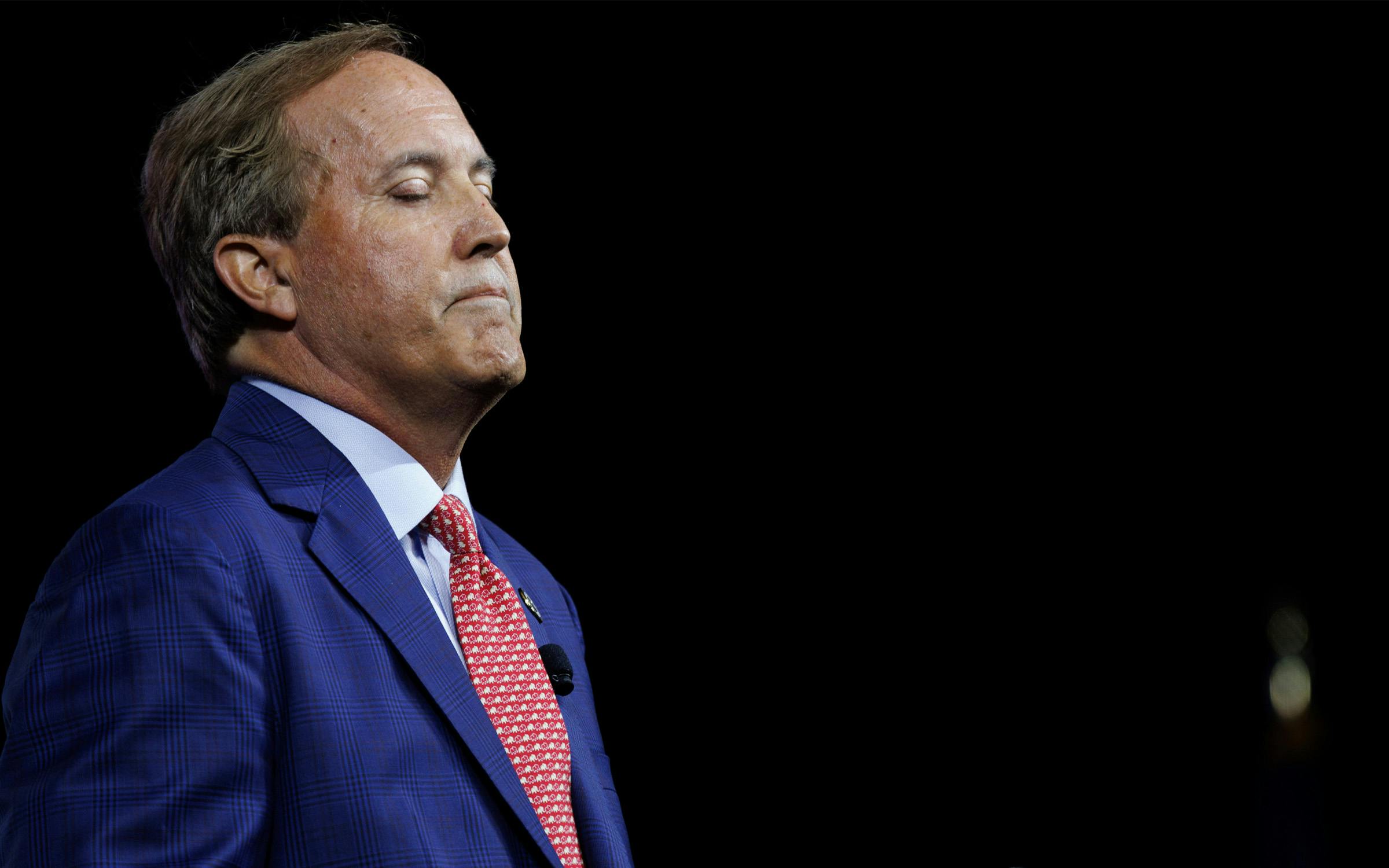An El Paso judge on Tuesday denied Attorney General Ken Paxton’s attempt to shut down Annunciation House, a Catholic migrant shelter. Paxton had targeted the 45-year-old nonprofit in February, when he accused its staff, without evidence, of “operating a stash house” and “harboring aliens,” and requested a host of records from the shelter in an attempt to prove it. But in granting Annunciation House relief from Paxton’s requests, District Court Judge Francisco X. Dominguez wrote that Paxton didn’t establish what laws the shelter was violating, and that he used the records request to harass its guests and operators. The judge, in his ruling, called this breach “outrageous and intolerable.”
Dominguez reasoned that closing the shelter, as Paxton intended, would violate the Texas Religious Freedom Restoration Act, which states that if a government agency burdens a person’s free exercise of religion, it has to use the “least restrictive means” of ensuring compliance. “Closing Annunciation House is obviously not the least restrictive means,” Jerome Wesevich, attorney for Annunciation House, said Tuesday. (The attorney general’s office did not respond to an interview request.) In an effort to discredit a religious freedom argument, Paxton had called into question the religious bona fides of the organization; he cited testimony that the shelter went periods of months without offering mass and that its staff made no attempt to convert its guests to Catholicism to undercut its religious affiliation. (It is perhaps worth noting that the shelter’s executive director, Ruben Garcia, says he took its name from a letter Mother Teresa had written him after he received the space from the Archdiocese of El Paso in 1978.) Wesevich called this tactic from the AG’s office “laughable.” “We’re talking about the fundamental teaching of Jesus: love one another, no exceptions,” Wesevich said following a June hearing. “If that does not get protection, what does?”
It is notable that the ruling rested, at least in part, on a religious freedom argument. Since the federal Religious Freedom Restoration Act was passed in 1993, claims of such violations have increased. While the most common (and widely publicized) examples feature conservative Christians arguing that progressive policies violate religious practice—see Hobby Lobby winning the right to deny contraception coverage or wedding vendors refusing to provide services to LGBTQ customers—other claims track more closely with that of Annunciation House, a charitable group trying to aid others in the face of draconian policies. In 2019, volunteers with the Arizona border aid group No More Deaths were convicted on misdemeanor charges related to leaving water for traveling migrants in a restricted area. Those charges were later dismissed after the volunteers successfully argued that their actions were an exercise of sincerely held religious beliefs. More recently, abortion rights groups have argued that restrictive abortion laws violate religious liberty guarantees.
Annunciation House is one of several faith-based organizations along the U.S.-Mexico border that receives—and provides food and travel assistance to—asylum seekers from federal agencies, including Immigration and Customs Enforcement and U.S. Border Patrol. State leaders such as Paxton and Governor Greg Abbott have been in a long-simmering power struggle with those federal agencies and the Biden administration over policing border crossings.
“It’s unclear what the attorney general is practically trying to accomplish,” Wesevich said Tuesday, adding that if Paxton succeeded, it would simply result in more people in El Paso streets. “All it does is provide a narrative of chaos on the border which is a narrative that some people politically want to promote.”


